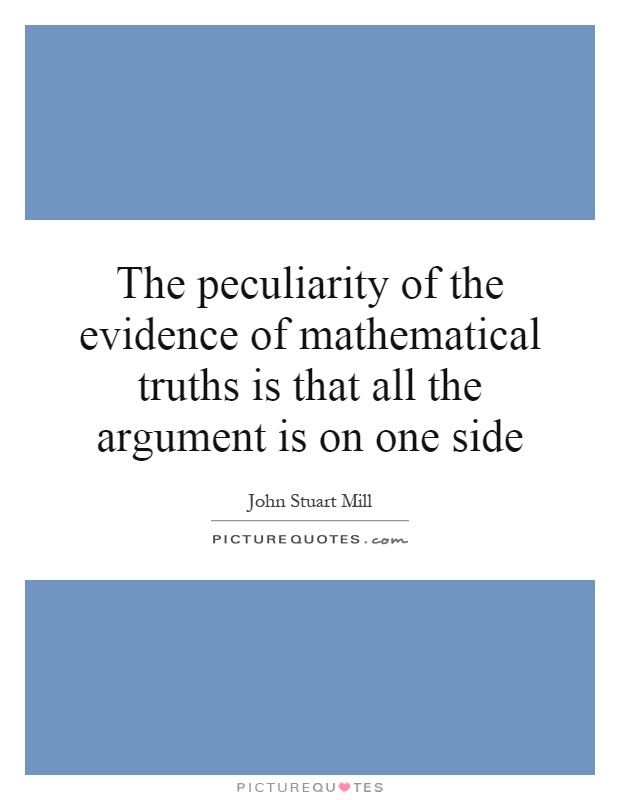The peculiarity of the evidence of mathematical truths is that all the argument is on one side

The peculiarity of the evidence of mathematical truths is that all the argument is on one side
John Stuart Mill, a prominent philosopher and political economist of the 19th century, made significant contributions to the fields of logic, ethics, and political philosophy. One of his key ideas was the concept of the peculiarity of the evidence of mathematical truths, which he discussed in his work "A System of Logic."In this work, Mill argues that the evidence for mathematical truths is unique in that all the argument is on one side. Unlike empirical truths, which are based on observation and experience, mathematical truths are derived from pure reason and logic. In other words, mathematical truths are self-evident and do not require empirical evidence to support them.
Mill's assertion that all the argument is on one side when it comes to mathematical truths highlights the certainty and universality of these truths. Unlike empirical truths, which are contingent on specific circumstances and can be subject to revision based on new evidence, mathematical truths are absolute and unchanging. For example, the statement "2+2=4" is true in all possible worlds and cannot be disproven.
Furthermore, Mill's discussion of the peculiarity of the evidence of mathematical truths sheds light on the nature of mathematical reasoning. In mathematics, arguments are based on deductive reasoning, where conclusions are derived from a set of axioms and logical rules. This deductive method allows mathematicians to prove theorems with certainty, leading to the establishment of mathematical truths.
Moreover, Mill's emphasis on the uniqueness of mathematical evidence underscores the importance of mathematics as a foundational discipline. Mathematics provides the framework for other scientific disciplines and plays a crucial role in shaping our understanding of the natural world. By recognizing the peculiarity of the evidence of mathematical truths, we can appreciate the beauty and power of mathematical reasoning in uncovering the fundamental truths of the universe.












 Friendship Quotes
Friendship Quotes Love Quotes
Love Quotes Life Quotes
Life Quotes Funny Quotes
Funny Quotes Motivational Quotes
Motivational Quotes Inspirational Quotes
Inspirational Quotes